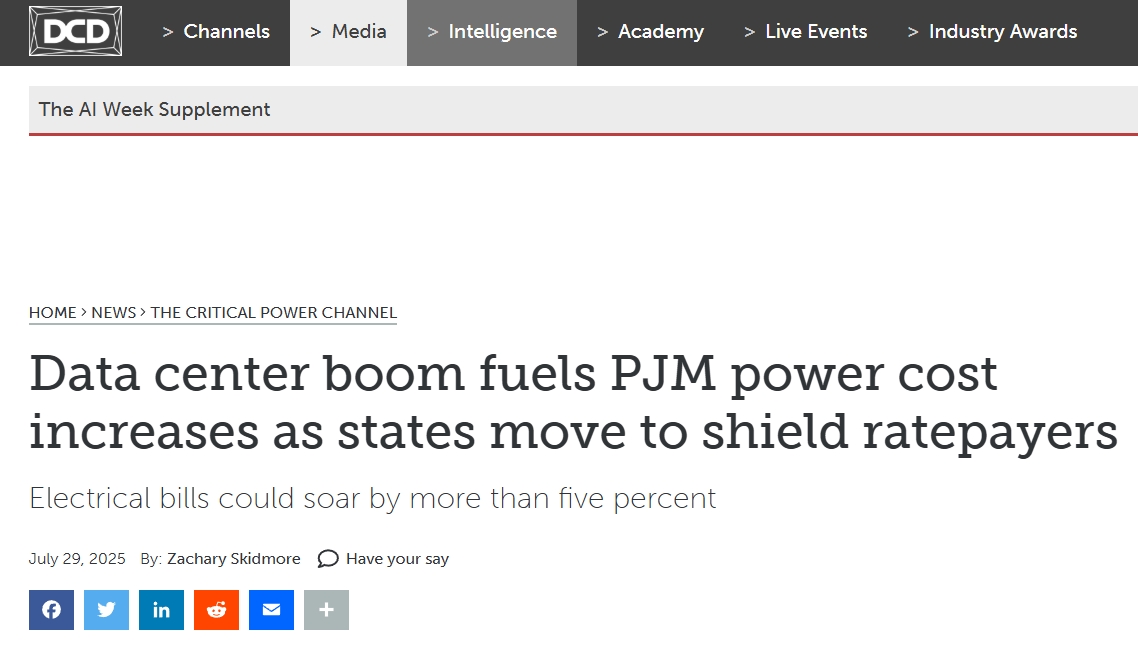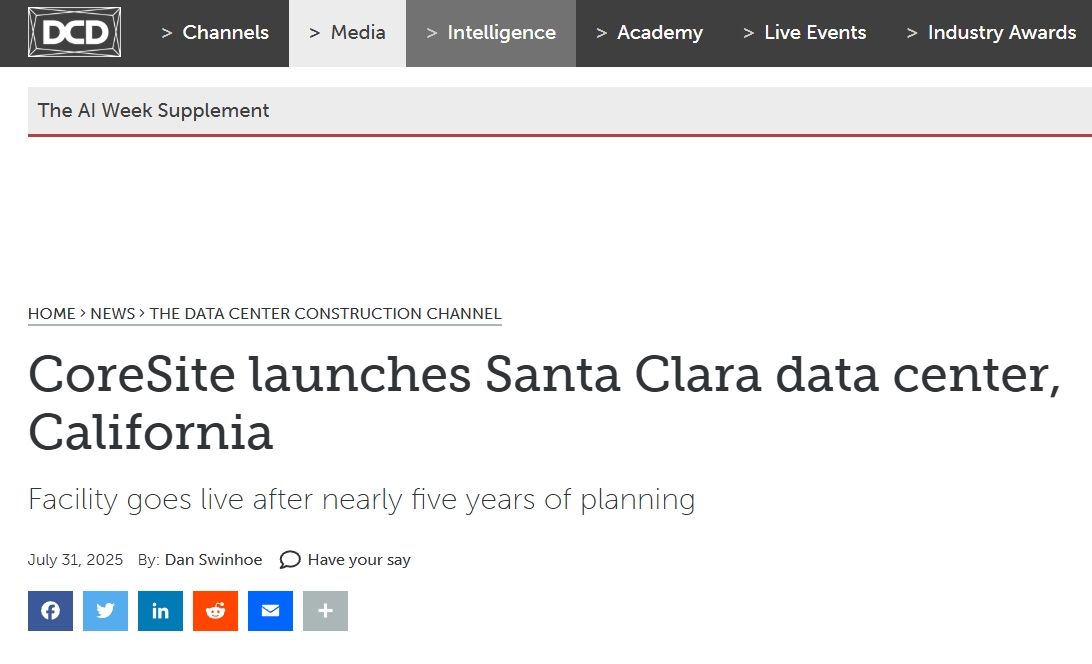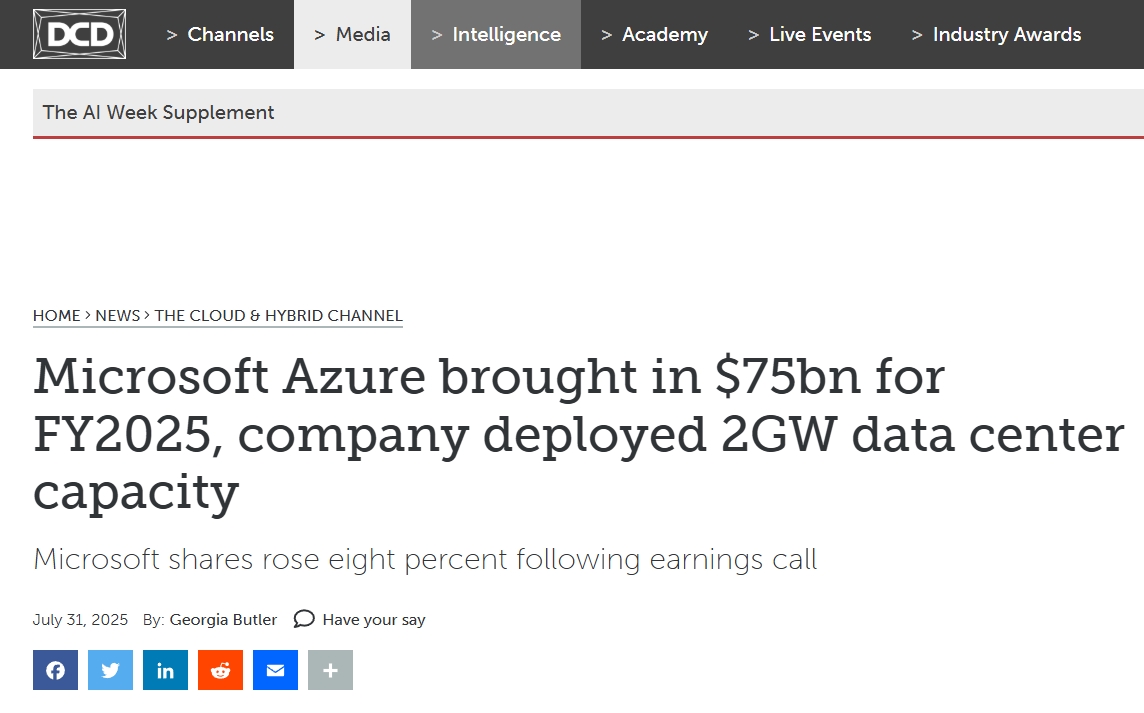Electrical bills could soar by more than five percent.
Ratepayers across the PJM Interconnection grid are facing spiralling bills fueled by the growth of the data center sector across the regional transmission operators (RTO) network.
Last week, the RTO closed its annual capacity auction, which sets the cost of wholesale electricity for the following year. The latest auction saw wholesale electric capacity grow 22 percent compared to last year, yet another record-breaking year. Consequently, monthly electrical bills across the 13 states served by PJM could soar by more than five percent in the next year.
Data centers are a primary driver of this increase, with PJM covering some of the largest data center markets in the world. For example, Dominion Energy, Virginia’s biggest utility, reported in its Q4 2024 earnings that it has approximately 40GW in various stages of contracting as of December 2024.
In the auction, PJM procured a total of 134,311MW of capacity selected from 135,192MW of offered resources, which was a year-on-year decline in supply. The RTO achieved an 18.9 percent reserve margin, even as projected peak demand rose by roughly 5.5GW, driven primarily by rapid expansion in data center energy use.
Natural gas remained the dominant resource, making up 45 percent of the cleared capacity. Coal and nuclear followed at 22 percent and 21 percent, respectively. Hydroelectric contributed four percent, while wind and solar accounted for three percent and one percent.
In locations served by Exelon and its utilities, where utilities are barred from owning generation, the utilities are considering “all options” for getting more power supplies into PJM, including getting back into rate-regulated generation.
Ohio is expected to see significant cost increases. In the data center hub of Columbus, the average residential bill is set to increase by $27 a month. Overall, residential bills across the 13 states in which utilities participate in the capacity market are expected to grow significantly next year, with data centers the main culprit.
Despite the overall growth, some areas saw capacity prices drop year on year. For example, in Virginia, capacity prices fell from $444/MW-day in 2025/26 to $329/MW-day for 2026/2027. According to reporting, transmission upgrades in the region increased capacity import limits by 43 percent, which unlocked the reliability constraints that had pushed prices higher than the rest of PJM in 2025/2026.
A major implication of this is the role transmission upgrades and improvements can have on capacity prices. We have recently seen several companies emerge this year offering artificial intelligence-powered solutions to unlock capacity across the grid for data centers. Earlier this year, PJM partnered with Google to deploy AI to facilitate faster grid connection times.
Protecting ratepayers
Legislators across several states have moved to introduce measures to protect ratepayers from bearing the cost of transmission upgrades and power generation developments needed to meet soaring energy demand.
Last month, Ohio regulators voted to approve a settlement that would require new data center customers to pay for a minimum of 85 percent of the energy they say they need each month, even if they use less, to cover the cost of infrastructure required to bring electricity to those facilities. For example, if a data center required 1GW of power, it would be charged for at least 850MW, even if it doesn’t end up using it.
In Pennsylvania, Senator Katie Muth, a Democrat, said she was preparing to introduce the Pennsylvania Ratepayer Protection Act, which would establish a separate rate class for high-load data centers and require them to cover utility infrastructure costs.
The legislation will be modeled after Oregon's POWER Act, passed last month, which created a “high-load customer class” that applies to new or expanding data centers with a peak demand of 20MW or more.








